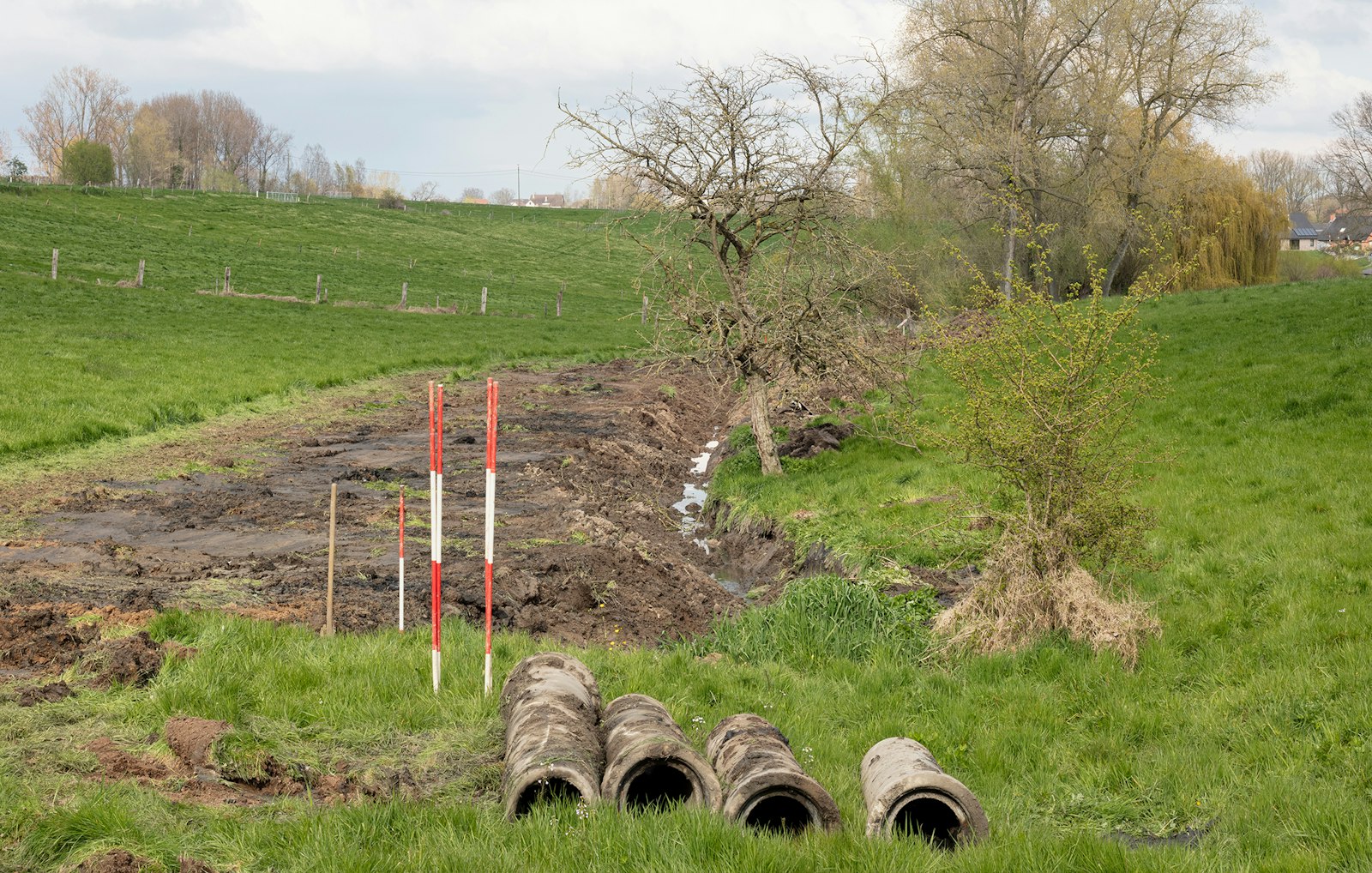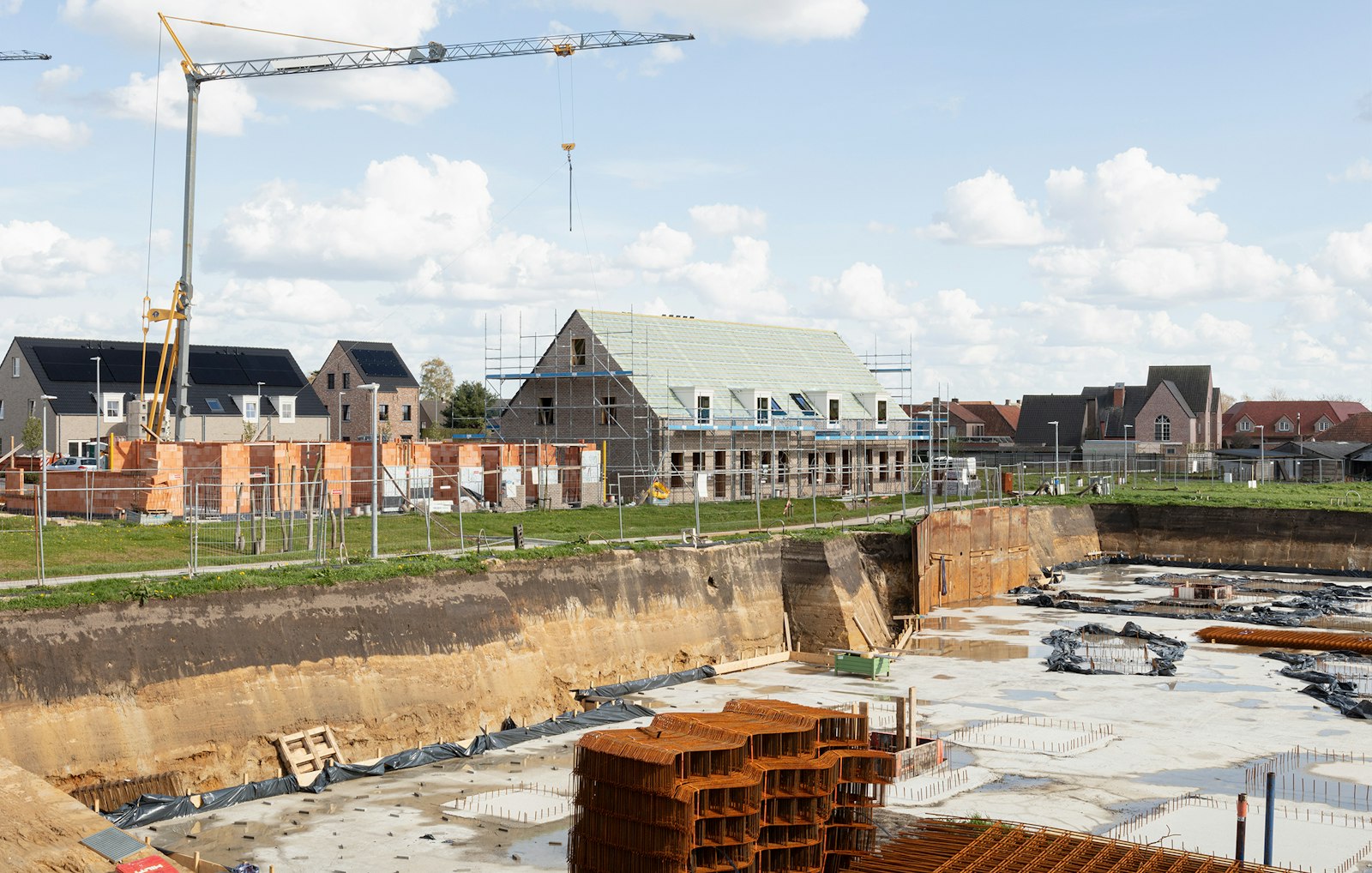de Velde
De Droge Delta
De Droge Delta is a design study of spatial levers in the fight against water scarcity.
De Droge Delta (The Dry Delta) is an investigation into spatial levers in the fight against water scarcity. Designers, researchers and experts alike shared their insights for this design-based research, which visualises the spatial challenges and solutions to drought in Flanders. The research was set up in a policy context, with a thorough interdisciplinary approach being paramount. This approach was used to explore the problems and causes of drought and to map out the correlation with how we use space. Potential solutions, the desired transformation of the landscape and the space in which we live, were also portrayed.
The jury on De Droge Delta:
This research project seeks a solution to an urgent social problem, namely water scarcity and drought in Flanders. The manifestation of the academically underpinned research is expressed in a visually sophisticated and accessible publication depicting a visionary solution. The interdisciplinary collaboration between scientists, designers, experts and empirical experts results in a broader and richer solution toolkit for such a complex social issue. With this in mind, the jury calls on the education and creative industries to enter into even more interdisciplinary partnerships to jointly find feasible solutions.
What makes your project so special?
De Droge Delta illustrates the spatial differences in drought measures. LABO RUIMTE started from the broad Flemish perspective, to visualise spatial differentiation on drought challenges. Flanders is small and yet every piece looks different. A different relief, a different soil and subsoil or a different land use: it all has an impact on how water flows and infiltrates. By taking the broad view, LABO RUIMTE draws the debate on water management and drought measures away from an infrastructural perspective and approaches drought from a spatial-social point of view. This requires a different approach, but provides a more integrated result, which will work more effectively and more efficiently on drought.
How does it contribute to a better world?
Working on drought – the way we are pushing forward in De Droge Delta – means trying to restore our groundwater levels to a natural level. As a result, our landscapes, our crops, our biodiversity and watercourses become a whole lot more climate resilient. We will be less susceptible to prolonged periods of drought. The design-based research shows many other possibilities. For example, we can roll out a more robust drinking water system in sandy areas. We can tackle other water-related challenges in a linking operation if we take concrete action with De Droge Delta. Examples include the salinity challenges on the coast or possible flood reduction when the drought measures are rolled out on a large scale.
Do you have any further plans for this project?
De Droge Delta is a design-based study that, with a long-term time frame, brings into focus spatial implications, in order to work on drought and water scarcity in a robust manner. This approach often raises more questions than answers. The design teams, in collaboration with experts, are imagining a possible future. The actual realisation of such a vision of the future requires a different approach, which has consequences for policy, financing, cooperation, landscaping, etc. Because LABO RUIMTE is anchored in the Environment department, we are seeking to further translate the insights into reality through all kinds of projects and policy initiatives.







